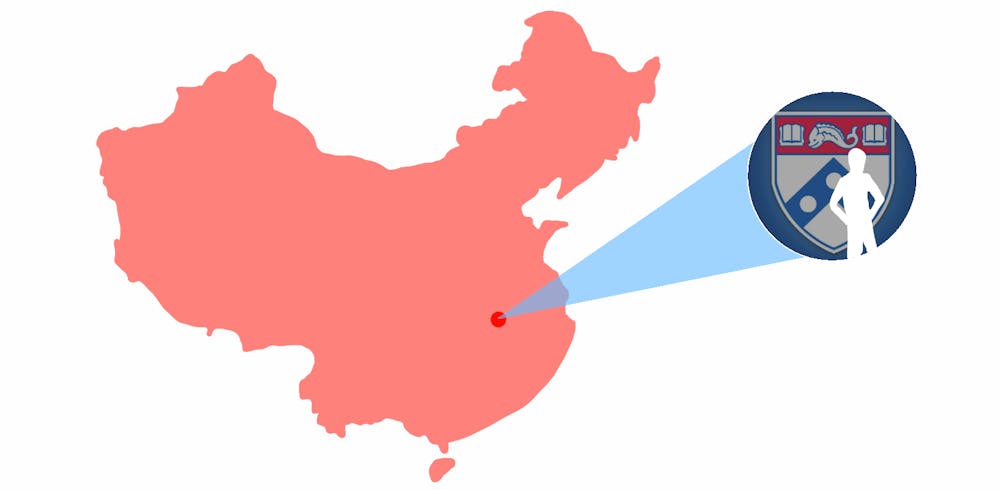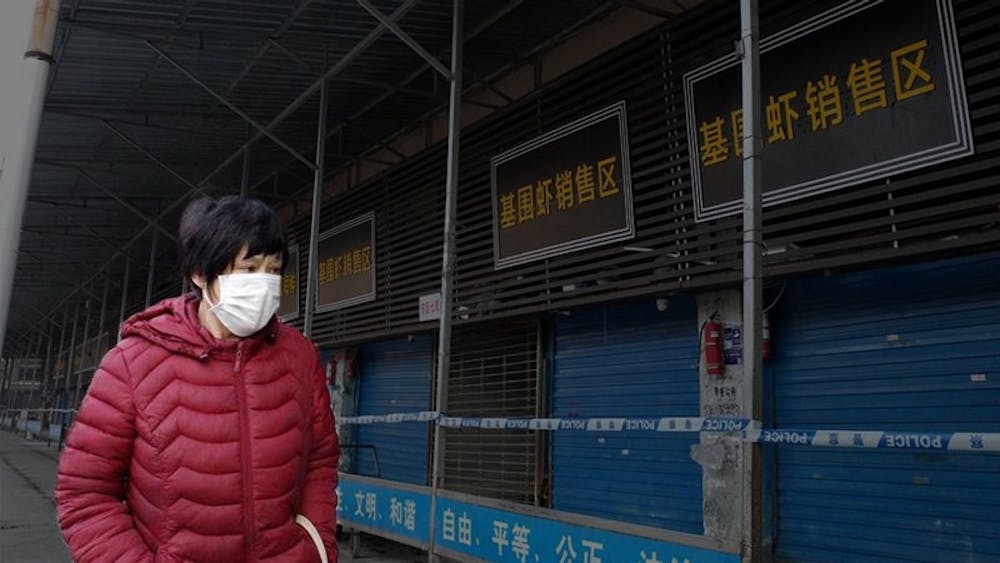
Zhexuan Huang is stranded. Stuck in the epicenter of the coronavirus outbreak, the College sophomore is unable to return to Penn from his home city of Wuhan, China.
Huang has not been able to leave his house, let alone Wuhan, for weeks and has been forced to take a leave of absence from Penn this semester. He was in the process of renewing his student visa in early January when the virus outbreak began and was told by the United States consulate in Guangzhou, China that he would receive his passport within approximately one week. He had planned to leave for Penn on Jan. 15 but did not receive his visa by then. With his visa still pending and Wuhan on lockdown, Huang cannot return to Penn this semester.
“I still haven't received my passport back, and Wuhan is still completely blocked – like all the public transportation is closed, including airports, even highways," Huang said.
Huang added that he has not left his home since Jan. 14. His parents both stopped working, although his father leaves the house once a week to buy groceries from supermarkets still open in the city. Huang said trees block his view of the city streets from his apartment, but through drone footage circulating online, he can see how empty the city of 11 million has become.
“Some people fly their drones outside the city to see the view of the city right now,” he said. “There are pretty much no cars on the street, like no people walking. The city is like a ghost city. It's like a zombie apocalypse now.”
Before Wuhan went into lockdown on Jan. 23, Huang maintained hopes of returning to Penn. He spent time stuck indoors trying to keep up with schoolwork for his mathematical economics degree.

Coronavirus originated in Wuhan, China and has spread to at least 23 countries. (Photo by SISTEMA 12 | CC BY-SA 4.0)
“I sent emails to all my professors to ask them if I could study the course remotely and even take the midterms, all the exams remotely,” Huang said. “They told me the college policy doesn't allow me to do that – so there's pretty much no way for me to catch up with the courses.”
Penn’s International Student and Scholar Services advised Huang to take a leave of absence this semester, and he said he will begin that process on Monday. Huang said he will not have to pay tuition this semester, and he hopes to return to Penn in the summer to work and take classes.
Huang said he knows two other Penn students from Wuhan who were able to make it back to campus before the city went under lockdown.
Coronaviruses are a large, fairly common family of viruses, but the new strain detected by Chinese authorities on Dec. 31 is spreading rapidly throughout China, prompting travel restrictions in Wuhan and other cities. According to The New York Times, coronavirus cases have spread to at least 23 countries, with 17,000 infections and over 300 confirmed deaths. The New York Times reported health experts believe the virus will become a global pandemic.
The Trump administration declared a public emergency because of the coronavirus Jan. 31 and put in place the first quarantine in over 50 years. Beginning Sunday night, restrictions will begin on travelers who have been in China over the past 14 days. American citizens will be put under quarantine, while foreign nationals will be restricted from the country.
According to a Jan. 24 email sent to the Penn Community by Provost Wendell Pritchett, Executive Vice President Craig Carnaroli, and Chief Wellness Officer Benoit Dubé, there are no reported cases of the virus at Penn.
The virus is thought to have originated in a market in Wuhan, that sells poultry, meat, seafood, as well as rarer items like live reptiles. Currently, researchers suspect the coronavirus may have originated in bats and jumped from the bats to animals sold at the market.
Wuhanese people are facing discrimination within China, such as hotel owners refusing to offer them rooms, Huang said. According to CNN, many Wuhan residents, especially those who left the city for the Lunar New Year, are stranded in other parts of the country without a place to stay.
Although Huang does not know anyone personally who has been infected, he said one of his uncle’s high school classmates and two of his mother’s former colleagues have died because of the virus. He said hospitals are so full that there is not enough equipment to test all those with symptoms for coronavirus.
Huang added he thinks the number of people infected and the death tolls are higher than reported.
Some medical experts believe the current data reported by the Chinese government officials may be inaccurate not because of intentional underreporting, but because it is difficult to collect exact numbers during the early days of an epidemic.
“I don't think people really understand how serious the situation is,” Huang said. "I'm just suspecting that the numbers, the data that we've seen, is to be questioned."
The Daily Pennsylvanian is an independent, student-run newspaper. Please consider making a donation to support the coverage that shapes the University. Your generosity ensures a future of strong journalism at Penn.
Donate



